Effectiveness of The Specialized Courts
VerifiedAdded on 2022/08/13
|5
|1296
|32
AI Summary
Your assignment is due no later than Sunday by 11:55pm 2/23/20. This assignment will focus on specialized courts. PDF format, 4-5 pages (not including references and cover page) and a min. of four references. There are many journal articles and resources on the Internet regarding specialized courts, including Mental Health Courts and Veterans Courts, among others. Find an article (within the last three years), research a journal study, news story. etc. regarding a specialized court. Summarize the article and give your personal opinion (presented factually without "I" - avoid writing in first person) based on what you find, as to whether or not this specialized court is worth funding (strengths and weaknesses). Discuss current statistics about the effectiveness of specialized courts (again within the last 3-5 years). Please include a case example from the last three years of defendant sentenced in a specialized court.
Contribute Materials
Your contribution can guide someone’s learning journey. Share your
documents today.
1 out of 5
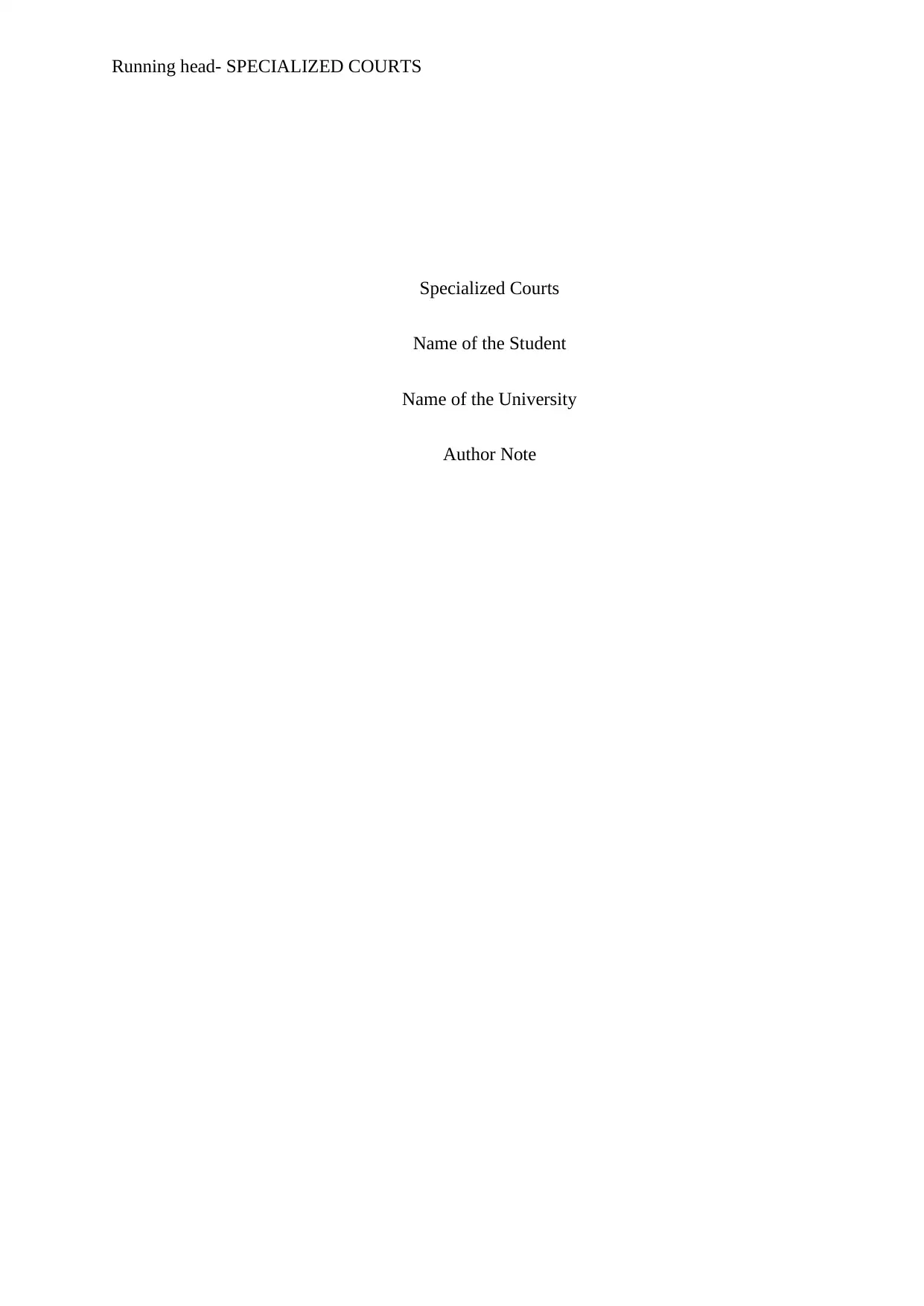
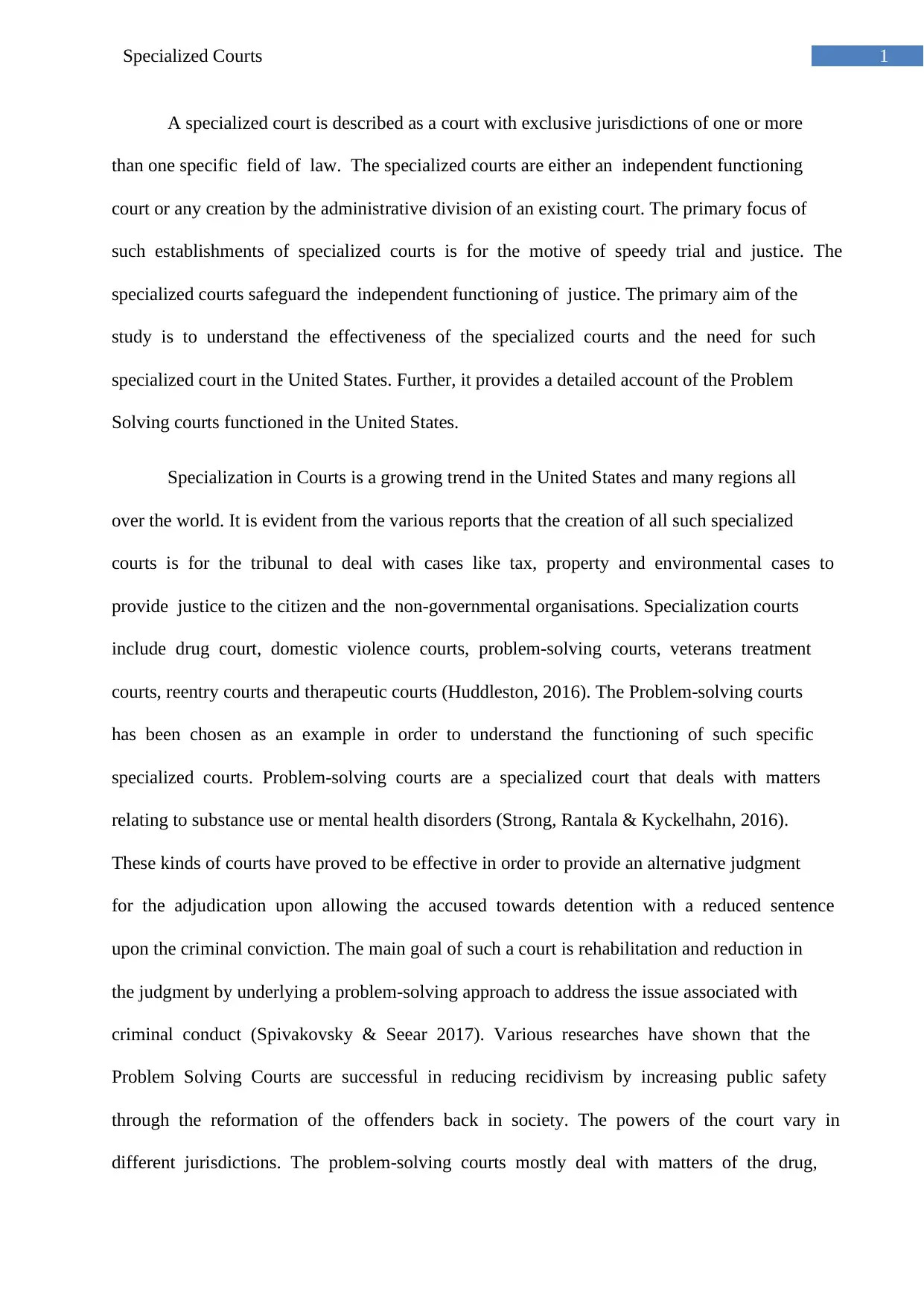
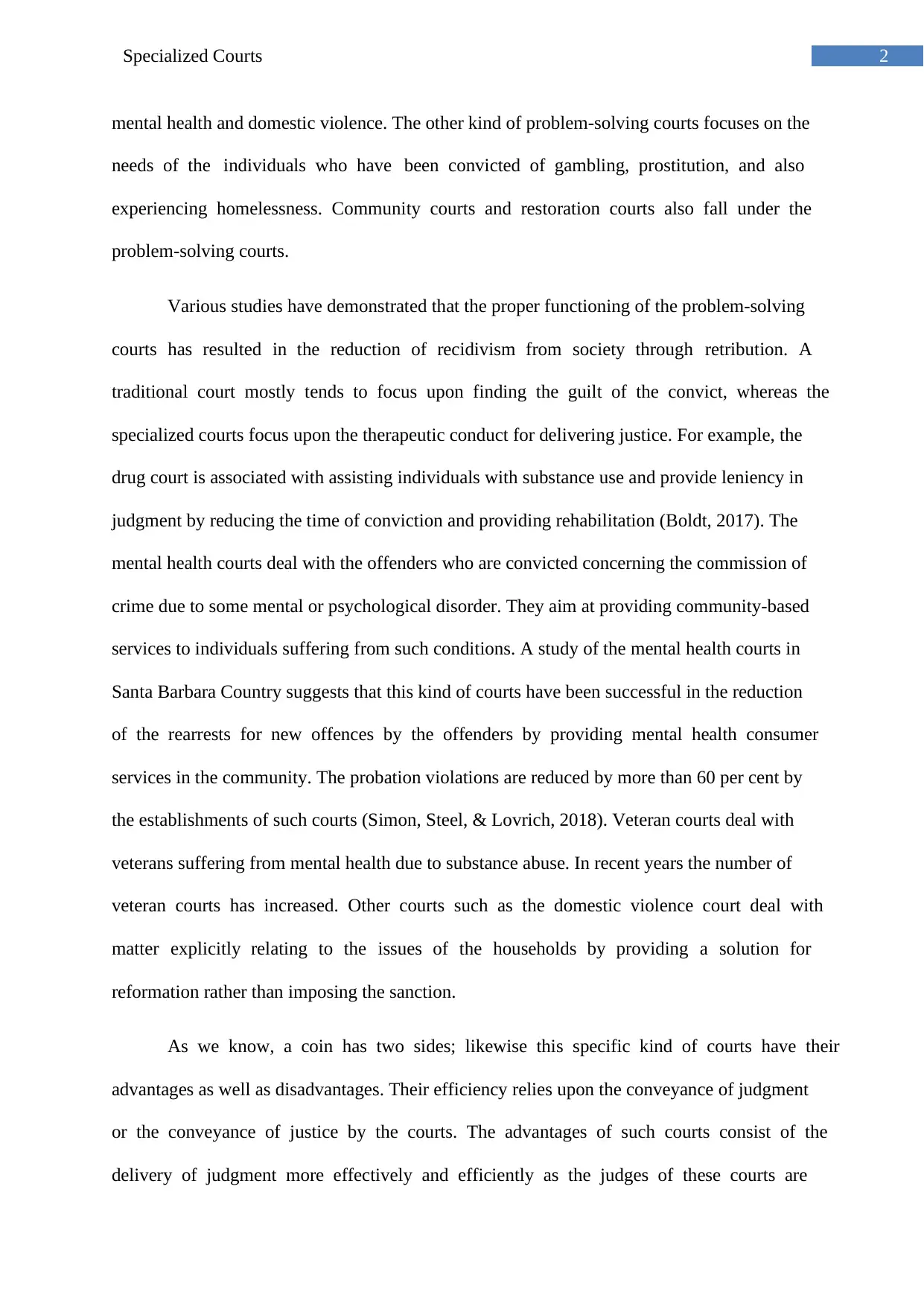
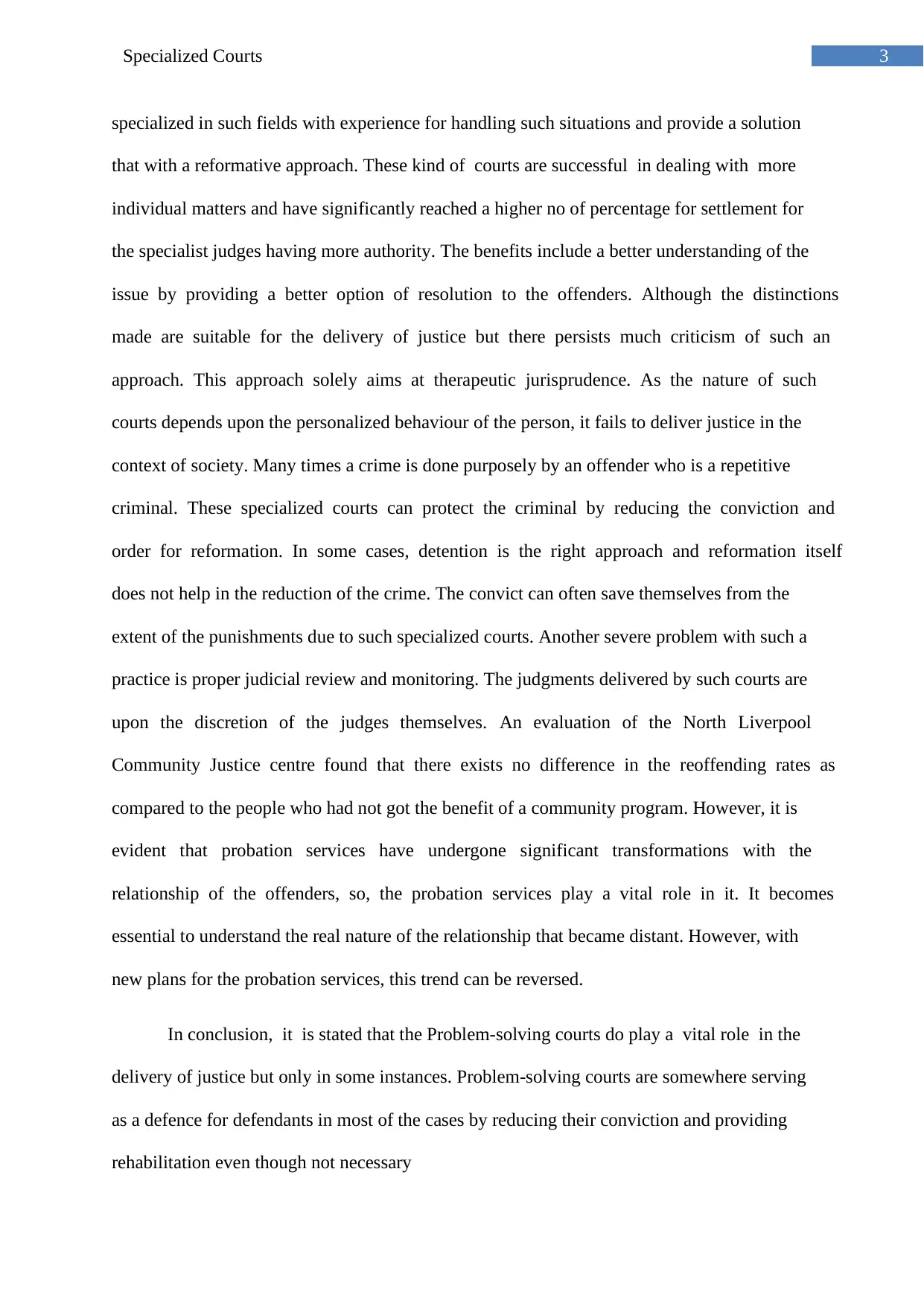
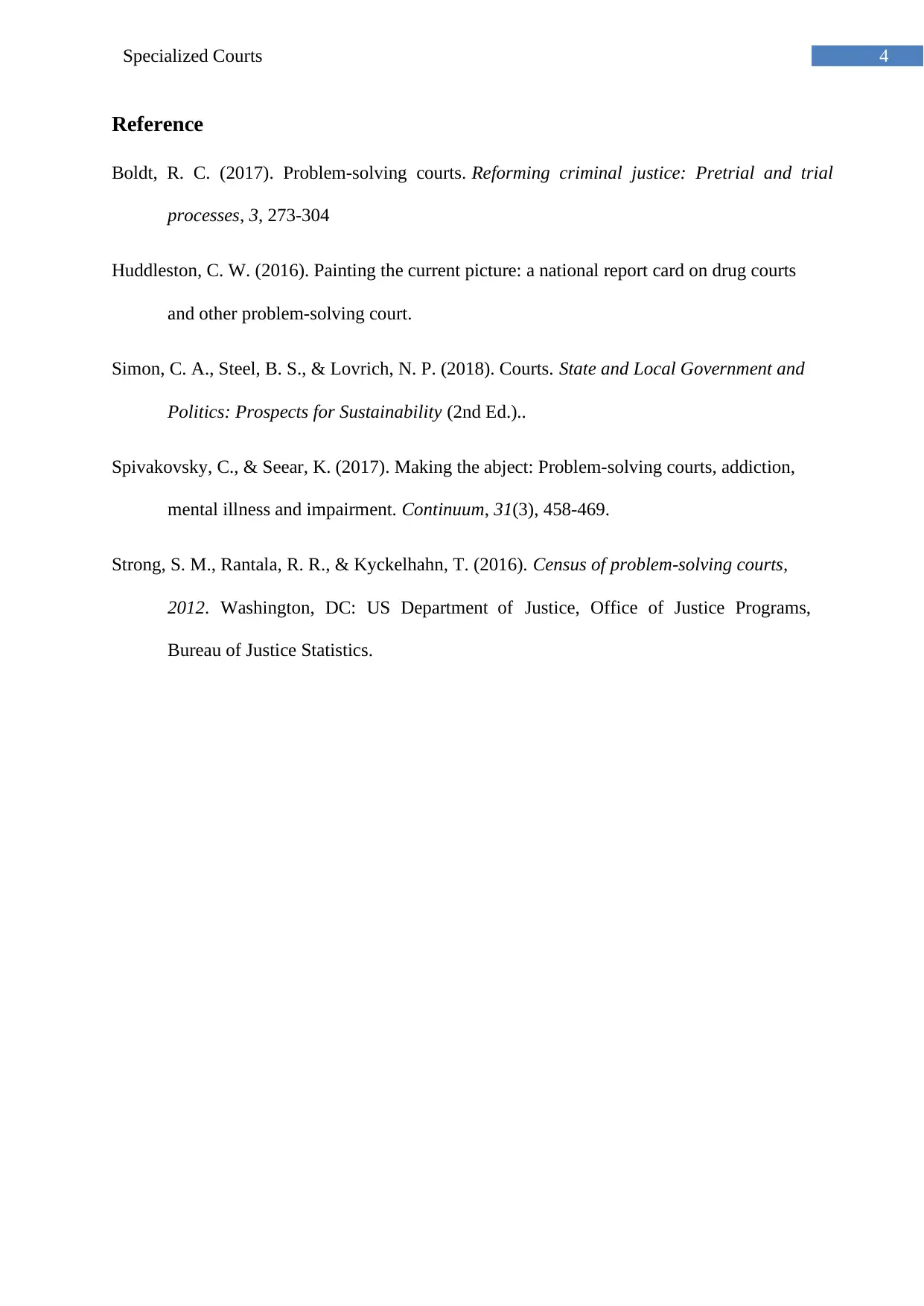






![[object Object]](/_next/static/media/star-bottom.7253800d.svg)